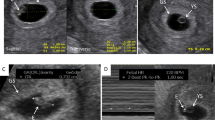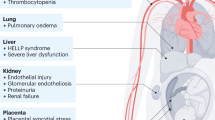Abstract
Objective:
To report the prevalence of hypophosphatemia during the first week of life in preterm infants receiving aggressive parenteral nutrition and to analyze population variables associated with severe hypophosphatemia.
Study design:
A retrospective cohort of 61 neonates below 1250 g birth weight consecutively born at Hospital Italiano de Buenos Aires exposed to high caloric and protein intake from the first day of birth. Primary outcome was hypophosphatemia (phosphate <4 mg dl−1). A one-sample mean comparison test was used to compare our sample with a hypothesized population mean.
Results:
The prevalence of hypophosphatemia was 91% (95% confidence interval (CI) 82 to 97%). The mean phosphatemia value was 2.52 mg dl−1 (95% CI 2.18 to 2.86), significantly different from the hypothesized population mean (P<0.001). Patients with severe hypophosphatemia (<2 mg dl−1) were smaller. They presented with sepsis more frequently and received more vasoactive drugs and mechanical ventilation.
Conclusion:
The prevalence of hypophosphatemia in this group of preterm infants is high. The potential association with adverse clinical outcomes deserves further research.
This is a preview of subscription content, access via your institution
Access options
Subscribe to this journal
Receive 12 print issues and online access
$259.00 per year
only $21.58 per issue
Buy this article
- Purchase on Springer Link
- Instant access to full article PDF
Prices may be subject to local taxes which are calculated during checkout



Similar content being viewed by others
References
Clark R, Thomas P, Peabody J . Extrauterine growth restriction remains a serious problem in prematurely born neonates. Pediatrics 2003; 111: 986–990.
Sakurai M, Itabashi K, Sato Y, Hibino S, Mizuno K . Extrauterine growth restriction in preterm infants of gestational age ≤32 weeks. Pediatr Int 2008; 50: 70–75.
Valentine C, Fernandez S, Rogers LK, Gulaty P, Hayes J, Lore P et al. Early amino-acid administration improves preterm infant weight. J Perinatol 2009; 29: 428–432.
Dinerstein A, Nieto RM, Solana CL, Pérez GP, Otheguy LE, Larguia AM . Early and aggressive nuritional strategy (enteral and parenteral) decreases posnatal growth failure in very low birth weight infants. J Perinatol 2006; 26: 436–442.
Ibrahim H, Jeroudi M, Baier RJ, Dhanireddy R, Krouskop R . Aggressive early total parenteral nutrition in low birth weight infants. J Perinatol 2004; 24: 482–486.
Lucas A, Morley R, Cole TJ, Gore SM, Lucas PJ, Crowle P et al. Early diet in preterm babies and development status at 18 months. Lancet 1990; 335: 1477–1481.
Lucas A, Morley R, Cole TJ . Randomized trial of early diet in preterm babies and later intelligence quotient. BMJ 1998; 317: 1481–1487.
ElHassan NH, Kaiser JR . Parenteral Nutrition in the Neonatal Inensive Care Unit. Neoreviews 2011; 12: e130–e140.
Ichikawa G, Watabe Y, Suzumura H, Sairenchi T, Muto T, Arisaka O . Hypophosphatemia in small for gestational age extremely low birth weight infants receiving parenteral nutrition in the first week after birth. J Pediatr Endocrinol Metab 2012; 25: 317–321.
Bonsante F, Iacobelli S, Latorre G, Rigo J, De Felice C, Robillard PY . Initial amino acid ntake influences phosphorus and calcium homeostasis in preterm infants. It is time to change the composition of the early parenteral nutrition. PLoS One 2013; 8: e72880.
Jamin A, D’Inca R, Le Floc’h N, Kuster A, Orsoneau JL, Darmaun D et al. Fatal effects of a Neonatal high-protein diet in low-birth-weight piglets used as a model of intrauterine growth restriction. Neonatology 2010; 97: 321–328.
Moltu SJ, Strommen K, Blakstad EW, Almaas AN, Westerberg AC, Braekke K et al. Enhanced feeding in very-low-birth-weight infants may cause electrolyte disturbances and septicemia—a randomized controlled trial. Clin Nutr 2013; 32: 207–212.
Mizumoto H, Mikami M, Oda H, Hata D . Refeeding syndrome in a small-for-dates micro-preemie receiving early parenteral nutrition. Pediatr Int 2012; 54: 715–717.
Pediatric Nutrition Practice GuideParenteral nutrition. In: Groh-Wargo S, Thompson M, Cox JH (eds). ADA Pocket Guide to Neonatal Nutrition. Precept Press Inc.: Chicago, IL, USA, 2009 pp 29–63.
Parikh MJ, Dumas G, Silvestri A, Bistrian B, Driscoll D . Physical compatibility of neonatal total parenteral nutrient admixtures containing calcium and inorganic phosphate salts. Am J Health Syst Pharm 2005; 62: 1177–1183.
Manary MJ, Hart CA, Whyte MP . Severe hypophosphatemia in children with kwashiorkor is associated with increased mortality. J Pediatr 1998; 133: 789–791.
Craddock PR, Yawata Y, Van Santen L, Gilberstadt S, Silvis S, Jacob HS . Acquired phagocyte dysfunction. A complication of the hypophosphatemia of parenteral hyperalimentation. N Engl J Med 1974; 290: 1403–1407.
Author information
Authors and Affiliations
Corresponding author
Ethics declarations
Competing interests
The authors declare no conflict of interest.
Rights and permissions
About this article
Cite this article
Brener Dik, P., Galletti, M., Fernández Jonusas, S. et al. Early hypophosphatemia in preterm infants receiving aggressive parenteral nutrition. J Perinatol 35, 712–715 (2015). https://doi.org/10.1038/jp.2015.54
Received:
Revised:
Accepted:
Published:
Issue Date:
DOI: https://doi.org/10.1038/jp.2015.54
This article is cited by
-
Nomogram for predicting early hypophosphatemia in term infants
BMC Pediatrics (2024)
-
Early high amino-acid intake is associated with hypophosphatemia in preterm infants
Journal of Perinatology (2022)
-
Severe hypercalcemia associated with hypophosphatemia in very premature infants: a case report
Italian Journal of Pediatrics (2021)



